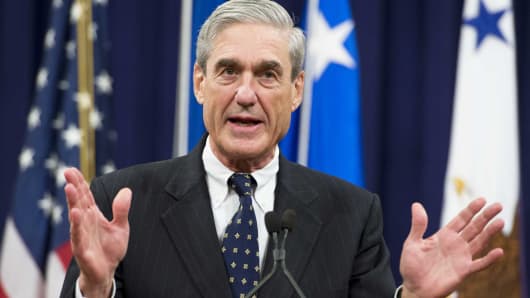The appointment of former FBI Director Robert Mueller as special counsel to investigate the Trump campaign's dealings with Russia was widely praised by both political parties.
But there was less clarity about what exactly he can and can't do.
In his new job, Mueller and his staff can interview witnesses, subpoena documents and, if the evidence merits, work with the bureau to bring criminal charges.
That FBI investigation will continue, even after President Donald Trump fired Director James Comey after reportedly asking him to stand down on his probe into the business dealings of fired national security advisor Michael Flynn. The FBI is also looking into Moscow's interference in the 2016 election.
But some Democrats think the special counsel role doesn't go far enough in insulating Mueller from White House interference.
"Director Mueller will still be in the chain of command under the Trump-appointed leadership of the Justice Department," House Minority Leader Nancy Pelosi, D-Calif., said in a statement. "He cannot take the place of a truly independent, outside commission that is completely free from the Trump administration's meddling."





